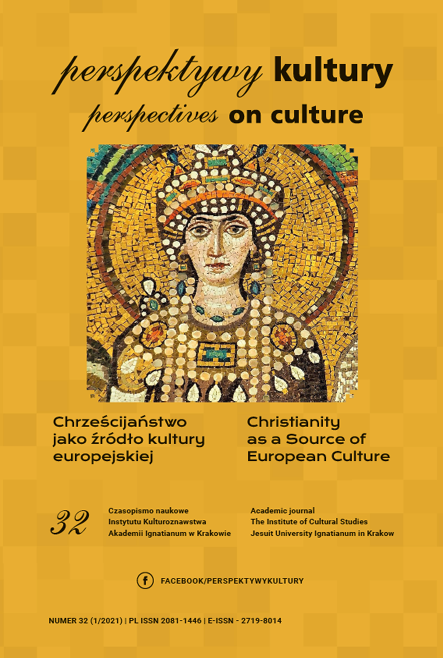The Tourist Destination Management and Its Dynamism: The Case of Barcelona Versus Catalonia
Abstract
The present article tries to evaluate, from the analysis of different managerial components and factors, the degree of competitiveness and dynamism of a tourist destination. To carry out this analysis, the city of Barcelona and its role as the capital of Catalonia have been chosen. At a time of deep worldwide economic crisis due to Covid-19 pandemic tourism has declining by 70% worldwide during 2020. Nevertheless, tourism has demonstrated its great resilience and strength as a global engine for economic activities development generating jobs and wealth over the last decades. It is in this context, where the article analyzes the behavior of Barcelona, as a reference for the destination Catalonia, in front the pandemic crisis and the strength of new emerging tourism competitors. Indeed, the reorganization of the pattern of distribution of tourist flows in the global tourism market due to health restrictions and the pace of economic emitting powers recovery generates a significant number of new opportunities. Tourist flows are posing new challenges in terms of their reception, the management of their stay and the fulfillment of a high degree of satisfaction in relation to their tourist experience. This article analyses a series of strategies promoted by different agents and managers in the field of tourism to subsequently present a set of recommendations to help assist decision-making in a tourism sector that is going through difficult times.
References
Boyra, J. (2015). Tourism destination management: an overview of the advances of Catalonia. Tourismos: An International Multidisciplinary Refereed Journal of Tourism, Vol. 10, No. 2, 185–198.
Bremser, K., Alonso-Almeida, M.M., & Llach, J. (2018). Strategic alternatives for tourism companies to overcome times of crisis. Service Business, Vol. 12, No. 2, 229–251.
Britannica. (2021). Barcelona 1992 Olympic Games. Retrieved from: https:// www.britannica.com/event/Barcelona-1992-Olympic-Games
Chien, G.C. & Law, R. (2003). The impact of the severe acute respiratory syndrome on hotels: A case study of Hong Kong. International Journal of Hospitality Management, Vol. 22, No. 3, 327–332.
Henderson, J.C. & Ng, A. (2004). Responding to crisis: Severe acute respiratory syndrome (SARS) and hotels in Singapore. International Journal of Tourism Research, Vol. 6, No. 6, 411–419.
Generalitat De Catalunya. (2019). Directorate General of Tourism. Strategic Plan for Tourism of Catalonia 2018–2022. Retrieved from: http://empresa.gencat. cat/web/.content/20_-_turisme/coneixement_i_planificacio/documents/ arxius/Pla-estrategic-de-turisme-de-Catalunya-2018-2022_en.pdf
Ghaderi, Z., Mat Som, A.P., & Wang, J. (2014). Organizational learning in tourism crisis management: An experience from Malaysia. Journal of Travel & Tourism Marketing, Vol. 31, No. 5, 627–648.
Gössling, S., Scott, D., & Hall, C.M. (2020). Pandemics, tourism and global change: A rapid assessment of COVID-19. Journal of Sustainable Tourism, Vol. 29, No. 1, 1–20.
Gursoy, D. & Chi, C.G. (2020). Effects of COVID-19 pandemic on hospitality industry: Review of the current situations and a research agenda. Journal of Hospitality Marketig & Management, Vol. 29, No. 5, 527–529.
Hao, F., Xiao, Q., & Chon, K. (2020). COVID-19 and China’s hotel industry: Impacts, a disaster management framework, and post-pandemic agenda. International Journal of Hospitality Management, vol. 90:102636.
Okumus, F. & Karamustafa, K. (2005). Impact of an economic crisis evidence from Turkey. Annals of Tourism Research, Vol. 32, No. 4, 942–961.
Smithsonian Folklife Festival. (2017). Human Towers: A Visual History of a Catalan Tradition. Retrieved from: https://festival.si.edu/blog/ human-towers-a-visual-history-of-a-catalan-tradition
Tew, P.J., Lu, Z., Tolomiczenko, G., & Gellatly, J. (2008). SARS: Lessons in strategic planning for hoteliers and destination marketers. International Journal of Contemporary Hospitality Management, Vol. 20, No. 3, 332–346.
Turisme De Barcelona. (2020). More than fifty tourism companies have obtained the Safe Travels label by the WTTC. Barcelona, 29th December 2020. Retrieved from: https://professional.barcelonaturisme.com/storage/ medias/files/dJVsOVRrL6aLG2bFS6l04WTlEII2KjF903c0iUoh.pdf
WTTC. (2021). Global Safety Stamp to Recognize Safe Travels Protocols. Retrieved from: https://wttc.org/COVID-19/Safe-Travels-Global-Protocols -Stamp
Copyright (c) 2021 Jesuit University Ignatianum in Krakow

This work is licensed under a Creative Commons Attribution-NoDerivatives 4.0 International License.
Autor, zgłaszając swój artykuł, wyraża zgodę na korzystanie przez Wydawnictwo Uniwersystet Ignatianum z utworu na następujących polach eksploatacji:
- utrwalania utworu w formie papierowej, a także na nośniku cyfrowym lub magnetycznym;
- zwielokrotnienia utworu dowolną techniką, bez ograniczenia ilości wydań i liczby egzemplarzy;
- rozpowszechniania utworu i jego zwielokrotnionych egzemplarzy na jakimkolwiek nośniku, w tym wprowadzenia do obrotu, sprzedaży, użyczenia, najmu;
- wprowadzenia utworu do pamięci komputera;
- rozpowszechniania utworu w sieciach informatycznych, w tym w sieci Internet;
- publicznego wykonania, wystawienia, wyświetlenia, odtworzenia oraz nadawania i reemitowania, a także publicznego udostępniania utworu w taki sposób, aby każdy mógł mieć do niego dostęp w miejscu i czasie przez siebie wybranym.
Wydawca zobowiązuje się szanować osobiste prawa autorskie do utworu.





